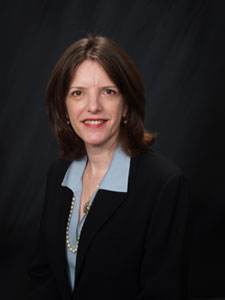President Selected for Manchester Community College
On Thursday, March 6, 2008, the Board of Trustees for the Connecticut Community Colleges selected Dr. Gena Glickman to serve as the next president of Manchester Community College in Manchester Connecticut, succeeding Dr. Jonathan Daube who will retire as the college’s president in June 2008.
Dr. Glickman is currently the Vice President for Instruction and Student Services at Elgin Community College, a large comprehensive community college north of Chicago with 19,650 headcount students. Dr. Glickman is the chief academic and student services officer at Elgin where she is a member of the President’s Executive Team and of the President’s Planning Council and Resource Development Team. Prior to coming to Elgin, Dr. Glickman was Associate Provost and Assistant Provost, beginning in 1999 at the University of Baltimore, an urban, upper division, graduate, and professional university, one of 13 institutions in the University of Maryland System. At Elgin, Dr. Glickman initiated an Academic Master Plan and led the college’s accreditation process resulting in commendation and 10-year accreditation. While at the University of Baltimore, Dr. Glickman initiated student learning outcomes assessment university-wide and was selected by the college’s president to develop an office of community college relations.
Dr. Glickman also served as Dean of the College at Maryland College of Art and Design, from 1997 to 1999 and Executive Director for Curriculum Development and Evaluation at Harford Community College, 1994 to 1997, and Assistant Vice President for Academic Affairs at Baltimore City College, 1992 to 1994, where she had also served as Assistant Dean for Career Services beginning in 1985. She is a book reviewer for the History of Education Quarterly, a refereed journal, has taught on-line graduate courses for the University of Phoenix, and she received the Elgin Community College Recognition Award nomination for the College Readiness Advisory Council and Summit in 2007.
Dr. Glickman holds a BFA in General Fine Arts from the Maryland Institute College of Art, an M.S. in Counseling and Education from Johns Hopkins University School of Education, and a Ph.D. in Education, Policy and Planning from the University of Maryland, College Park, Maryland.
David Blackwell, of Manchester, a member of the Community College Board of Trustees, served as Chair of the search committee for the presidency and worked with representatives of the college’s search advisory committee throughout the fall as they conducted a national search for the college’s new president. Mr. Blackwell attributed the successful outcome of the search to the match of Dr. Glickman’s experience in academic and administrative leadership with the search committee’s requirements for a president. “Dr. Glickman is an experienced educational leader who is committed to student success and meeting the needs of learners. Her astute academic leadership, her experience in planning, and her ability to build consensus about institutional priorities has led to her success and the success of the institutions she has served. Her dedication to community involvement is notable and will strengthen the relationship of the college with the communities it serves by expanding its offerings to benefit the entire Manchester region.”
Vice Chair of the Board of Trustees, Marie Spivey, Newington, Connecticut, also served on the Board’s search committee and expressed her confidence in Dr. Glickman’s ability to lead Manchester Community College during the coming years. “Dr. Glickman is well known for her dedication to teaching and learning. She is recognized as a talented academic leader, and she has been extremely successful in advancing the institutions she has served throughout her career. We look forward to having Dr. Glickman join our Connecticut system of Community Colleges.”
In meetings with the campus community and search committees, Dr. Glickman expressed her excitement about “creating opportunities for the future built on the strong traditions already in place at the college,” and emphasized the college’s potential “to make a real difference for a broad array of students and for the economic welfare of the region and the state.”
